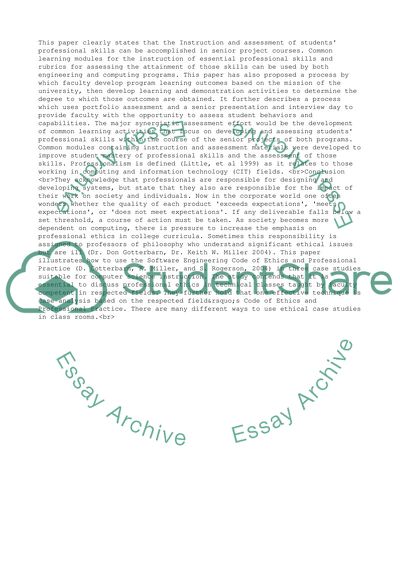Cite this document
(“Professionalism and Workplace Issues in the Cs/Is Curriculum Research Paper”, n.d.)
Professionalism and Workplace Issues in the Cs/Is Curriculum Research Paper. Retrieved from https://studentshare.org/management/1508103-professionalism-essay
Professionalism and Workplace Issues in the Cs/Is Curriculum Research Paper. Retrieved from https://studentshare.org/management/1508103-professionalism-essay
(Professionalism and Workplace Issues in the Cs/Is Curriculum Research Paper)
Professionalism and Workplace Issues in the Cs/Is Curriculum Research Paper. https://studentshare.org/management/1508103-professionalism-essay.
Professionalism and Workplace Issues in the Cs/Is Curriculum Research Paper. https://studentshare.org/management/1508103-professionalism-essay.
“Professionalism and Workplace Issues in the Cs/Is Curriculum Research Paper”, n.d. https://studentshare.org/management/1508103-professionalism-essay.


